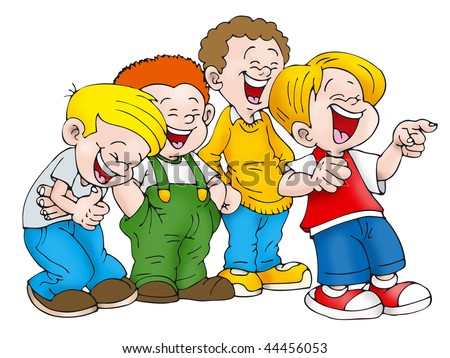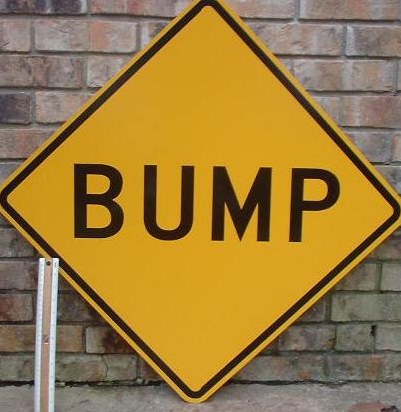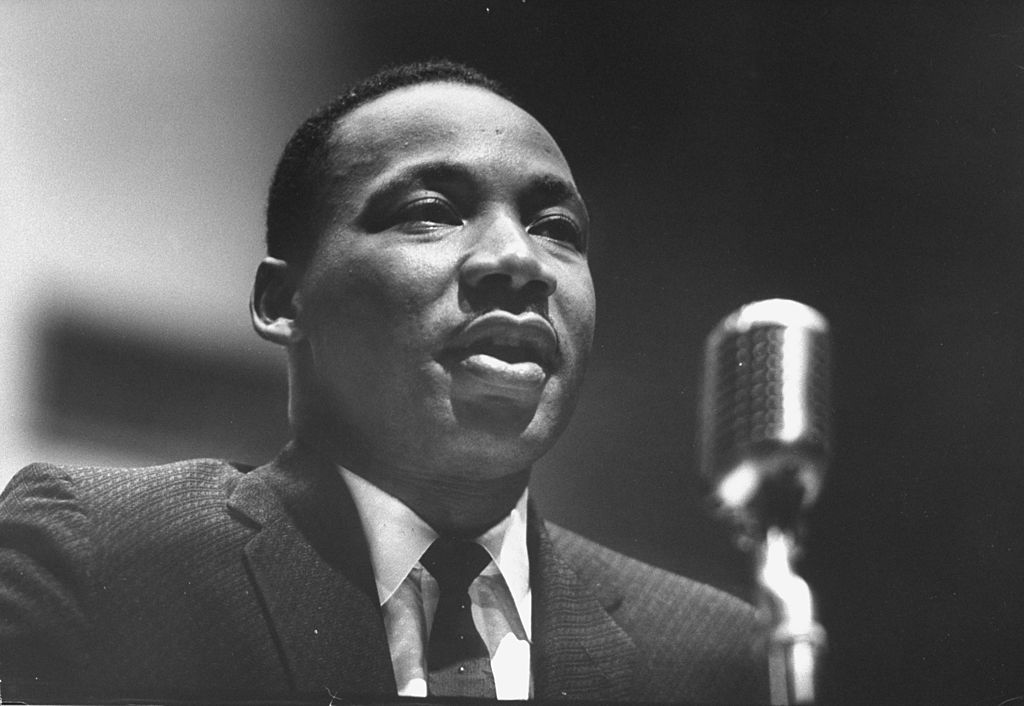Was Martin Luther King Jr. a Republican or a Democrat?
The Answer Is Complicated
"I’m not concerned about telling you what party to vote for," he said in 1958

time.com
TIME
By
livia B. Waxman January 17, 2020
Martin Luther King Jr.’s
influence on American politics and his views about
policy issues are a perennial topic of discussion around the time of his January 15 birthday and the Martin Luther King Jr. Day
federal holiday. However, the civil-rights leader’s personal political party affiliation remains a mystery.
His niece Alveda King, an Evangelical supporter of President Donald Trump, has argued that her uncle was a Republican, like his father Martin Luther King, Sr., who was also a Baptist minister.
That idea has been
repeated often, but videos that claim to show that Martin Luther King, Jr. is Republican have been
proven not to do so.
King’s son Martin Luther King III said in 2008 that it’s “disingenuous” to insist he was when there is no evidence of him casting a Republican vote. “It is even more outrageous to suggest that he would support the Republican Party of today,” the younger King added, “which has spent so much time and effort trying to suppress African American votes in Florida and many other states.”
The idea that King would have been a registered Republican is not far-fetched, given the party’s history and its position in national politics in the 1950s, but scholars and those who knew him best say they can’t imagine that he would have supported Republican presidential candidates in the 1960s. In fact, King himself
said he voted for Democrat Lyndon B. Johnson for President in 1964.
“I know of no one who has verified MLKJ’s party registration,” says
Clayborne Carson, editor of King’s autobiography and Professor of History and Founding Director of The Martin Luther King, Jr., Research and Education Institute at Stanford University. “[He] may have been registered as a Republican and voted Democratic [in national elections].”
If he did so, Carson adds, he would have been doing what many black Southerners did at the time: in Georgia and Alabama, where King lived, the Democratic party was “staunchly segregationist” and few African Americans would have registered as Democrats, even as the party was changing when it came to federal politics. In the South, of the two, the Republican Party “was the least hostile” to them, Carson says.
artin Luther King Jr.’s
influence on American politics and his views about
policy issues are a perennial topic of discussion around the time of his January 15 birthday and the Martin Luther King Jr. Day
federal holiday. However, the civil-rights leader’s personal political party affiliation remains a mystery.
His niece Alveda King, an
Evangelical supporter of President Donald Trump, has argued that her uncle was a Republican, like his father Martin Luther King, Sr., who was also a Baptist minister. That idea has been
repeated often, but videos that claim to show that Martin Luther King, Jr. is Republican have been
proven not to do so. King’s son Martin Luther King III
said in 2008 that it’s “disingenuous” to insist he was when there is no evidence of him casting a Republican vote. “It is even more outrageous to suggest that he would support the Republican Party of today,” the younger King added, “which has spent so much time and effort trying to suppress African American votes in Florida and many other states.”
The idea that King would have been a registered Republican is not far-fetched, given the party’s history and its position in national politics in the 1950s, but scholars and those who knew him best say they can’t imagine that he would have supported Republican presidential candidates in the 1960s. In fact, King himself
said he voted for Democrat Lyndon B. Johnson for President in 1964.
“I know of no one who has verified MLKJ’s party registration,” says Clayborne Carson, editor of King’s autobiography and Professor of History and Founding Director of The Martin Luther King, Jr., Research and Education Institute at Stanford University. “[He] may have been registered as a Republican and voted Democratic [in national elections].”
If he did so, Carson adds, he would have been doing what many black Southerners did at the time: in Georgia and Alabama, where King lived, the Democratic party was “staunchly segregationist” and few African Americans would have registered as Democrats, even as the party was changing when it came to federal politics. In the South, of the two, the Republican Party “was the least hostile” to them, Carson says.
The Republican Party had initially attracted many black voters by supporting ending slavery and enfranchising African Americans during the Civil War and Reconstruction. But in the late 1800s, as more western states joined the Union, party leaders began to depend less on to wooing black southern votes. The parties would
realign in the mid-20th century, as African-Americans moved North to cities where Democratic Party machines courted their votes, and they played a key role in
electing Franklin D. Roosevelt during the Great Depression.
Another reason to believe that King would have supported Democratic presidential candidates can be seen in an incident that took place just before Democrat John F. Kennedy was elected in 1960. That October, King was
arrested during a sit-in to protest the segregation of an Atlanta department store’s eating areas. A judge sentenced King to six months of hard labor, but Kennedy called the Georgia Governor and
asked him to find a way to get King out. He also called King’s wife Coretta, who was pregnant with their third child, to express his sympathies. “I just wanted you to know that I was thinking about you and Dr. King,” he told her. “If there is anything I can do to help, please feel free to call on me.”
The judge announced King’s
release on Oct. 27. King announced on Nov. 1 that, while he would not be officially endorsing a candidate so that he “could be free to be critical of both parties when necessary,” he was grateful to Senator Kennedy for the “genuine concern he expressed in my arrest.”
“Senator Kennedy exhibited moral courage of a high order,” King said at the time. “He voluntarily expresses his position effectively and took an active and articulate stand for a just resolution. I hope that this example of Senator Kennedy’s courage will be a lesson deeply learned and consistently applied by all as we move forward in a non-violent but resolute spirit to achieve rapidly proper standards of humanity and justice in our swiftly evolving world.”
King’s father, Martin Luther King Sr., did endorse Kennedy. And Kennedy won the election, thanks in part to winning over about
70% of the black vote.
In his autobiography, published posthumously in 2001, King acknowledged that he knew Kennedy’s call to Coretta might have been motivated by political calculation, but said Kennedy’s actions still took
“courage.” In fact, the candidate’s brother Bobby Kennedy, who ran his campaign, had been told by Southern governors that if JFK supported King (or Jimmy Hoffa or Nikita Khrushchev), they wouldn’t consider supporting the candidate,
recalled Harris Wofford, a Kennedy aide who recommended the call.
Observers also noted that Kennedy’s opponent, then-Vice President Richard Nixon, had not done anything to help King.
King noticed too:
“I had known Nixon longer,” he
said in a 1964 interview.
“He had been supposedly close to me, and he would call me frequently about things, seeking my advice. And yet, when this moment came, it was like he had never heard of me. So this is why I really considered him a moral coward and one who was really unwilling to take a courageous step and take a risk. And I am convinced that he lost the election because of that. Many Negroes were still on the fence, still undecided, and they were leaning toward Nixon.” King’s tone was the opposite of what he expressed
in a 1958 letter in which he described Nixon’s interest in the civil rights cause as
“sincere.”
Not long after, the two parties experienced one of the most important moments in their 20th century shift.
Step Into History: Learn how to experience the 1963 March on Washington in virtual reality
President Lyndon B. Johnson, who took office after Kennedy’s death in 1963, signed the Civil Rights Act in the summer of 1964. Angry over the law, many southern Democrats, perhaps most famously South Carolina’s Senator
Strom Thurmond, left the party. And when the 1964 election came around, Arizona Republican Senator Barry Goldwater, who had not backed the Civil Rights Act, became the party’s presidential nominee. He lost the election, but convinced even more southern Democrats to switch parties, ending up carrying only Deep South states.
By 1968, the Vietnam War had escalated, and King, who was firmly
anti-war, announced he would not support LBJ for president again. “I voted for President Johnson and saw great hope there, and I’m very sorry and very sad about the course of action that has followed,” he
said in a March 26, 1968, press conference for his Poor People’s Campaign. Five days later, Johnson said he would not seek re-election. King was
killed the same week.
That year, Richard Nixon ran for and won the presidency under a “Southern Strategy” platform focused on maintaining law and order and states rights.
Today,
about 80-90% of African-Americans are Democrats.
And, Carson suggests, these days King would probably be “to the left of the Democratic Party,” perhaps a
Democratic Socialist, like Senator Bernie Sanders or Representative Alexandria Ocasio-Cortez. “I am much more socialistic in my economic theory than capitalistic,” King wrote in a summer 1952 letter to his then-girlfriend
Coretta
But above all, when it came to public proclamations about his politics,
Martin Luther King, Jr. made it clear that he didn’t want to be in the business of endorsing political candidates. Civil rights and the right to vote, he believed, should be bipartisan.
“I don’t think the Republican party is a party full of the almighty God nor is the Democratic party,” he said
in a 1958 interview.
“They both have weaknesses. And I’m not inextricably bound to either party. I’m not concerned about telling you what party to vote for.”
Write to Olivia B. Waxman at
olivia.waxman@time.com.
"I’m not concerned about telling you what party to vote for," he said in 1958

time.com
.








